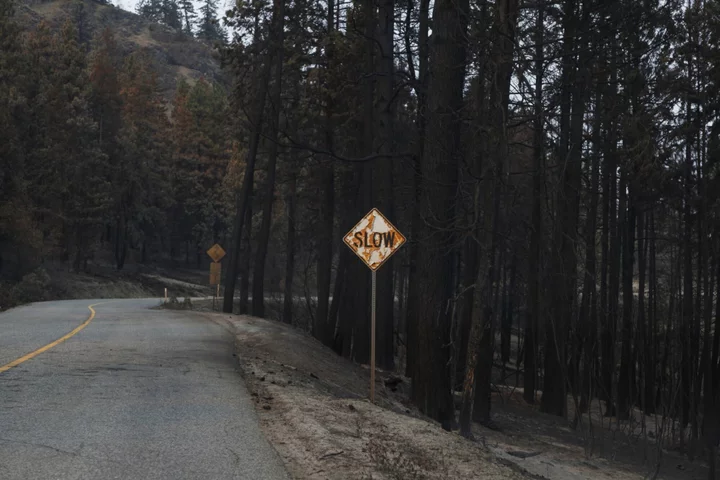Canada’s worst wildfire season on record, along with growing droughts in many parts of the country, have taken a toll on the economy, with multiple industries impacted by the adverse weather in the second quarter of this year.
Statistics Canada reported gross domestic product data for the second quarter on Friday, revealing that the country’s economy unexpectedly contracted at an annualized pace of 0.2%, driven by lower housing investment, inventories and net exports.
It also said that heat and flames gripping many parts of Canada contributed to losses in agriculture, accommodation, food services and mining and quarrying. The wildfire season — which began earlier than usual this year and continues to rage — has scorched 15.6 million hectares of land so far, an area larger than Bangladesh.
The agriculture, forestry, fishing and hunting sector fell 3.5% from the previous quarter, with crop production edging lower except for cannabis plants, the statistics agency said.
Mining, quarrying and oil and gas extraction contracted by 0.3% as forest fires curtailed activity in natural gas and crude oil extraction in Alberta in May, and iron ore mining in Quebec and Newfoundland and Labrador in June.
The flames also appear to have impacted tourism and recreation. Accommodation services posted its first decline in the last five quarters, dropping 1.6%. Coupled with poor air quality, the fires have restrained activity at recreational vehicle parks and camping grounds, the agency said.
In June, fires in northern Quebec led to multiple mine closures. Mining and quarrying fell 5.7% that month, its largest monthly contraction since November 2021. Metal ore mining decreased 6.7%, primarily as a result of a 35% drop in iron ore mining due to wildfires and maintenance issues in Quebec as well as Newfoundland and Labrador.
Wildfires also impacted rail transportation in June, dropping by 6.6% for the fourth decline in five months. A temporary suspension of a rail line that supports an iron ore mine in the Labrador West area severely affected iron ore railway carloadings, the statistics agency said.
However, oil and gas extraction rose 1.1% in June, partly offsetting a 3.4% contraction in May when the wildfires in Alberta affected the sector.

